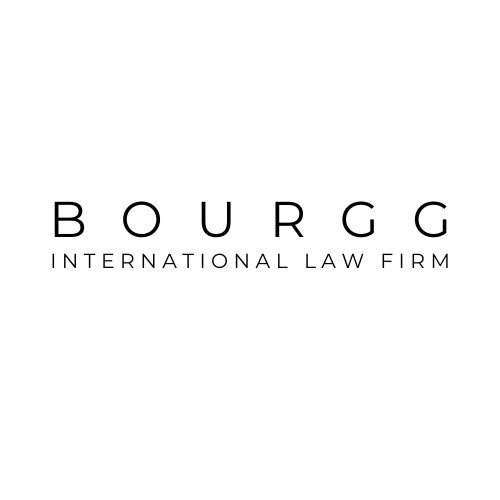Best Discrimination Lawyers in Providencia
Share your needs with us, get contacted by law firms.
Free. Takes 2 min.
List of the best lawyers in Providencia, Chile
About Discrimination Law in Providencia, Chile
Discrimination is a serious issue in Providencia, as it is throughout Chile. Discrimination occurs when individuals or groups are treated unfairly or unequally based on certain protected characteristics such as race, nationality, gender, age, disability, religion, sexual orientation, or political beliefs. Chilean law, including the Ley Zamudio (Anti-Discrimination Law), seeks to prevent and rectify discriminatory acts in all areas of daily life such as employment, education, public services, and access to goods. In Providencia, one of Santiago's key urban districts, vigilance against discrimination is crucial due to its diverse population and active commercial sector.
Why You May Need a Lawyer
People often seek legal assistance in discrimination cases for various reasons. If you believe you have been denied a job, a promotion, housing, entry to a public space, or access to services because of a protected characteristic, it may be necessary to consult a lawyer. Legal help can also be vital if you face workplace harassment, wrongful termination, or retaliation after complaining about discrimination. In many cases, discrimination is subtle or difficult to prove, so having professional support is valuable to gather evidence, navigate complex procedures, and pursue your case effectively in the appropriate administrative or judicial forums.
Local Laws Overview
Chile has enacted the Law 20.609, commonly known as the Ley Zamudio or Anti-Discrimination Law, which provides tools and remedies for victims of discrimination. This law defines arbitrary discrimination as any distinction, exclusion, or restriction lacking reasonable justification, carried out by public or private individuals, and which causes deprivation, disturbance, or threat to the legitimate exercise of fundamental rights. Providencia, as part of Greater Santiago, adheres to the national legal framework but also has local government offices equipped to receive complaints and provide guidance.
Key aspects of this law include a mechanism to file a legal action against the discriminator, the possible imposition of fines, and preventive measures. Labor laws in Chile also expressly protect employees against discrimination at work, including provisions in the Chilean Labor Code that address equality of pay and treatment.
Frequently Asked Questions
What counts as discrimination under Chilean law?
Discrimination is any unfair treatment or exclusion based on factors such as race, ethnicity, nationality, gender, sexual orientation, religion, disability, ideology, social status, or appearance, without valid legal justification.
Where can discrimination occur?
Discrimination can happen in the workplace, schools, commercial establishments, public spaces, government services, healthcare, or when trying to access housing or financial services.
What are the first steps if I believe I have been discriminated against?
Document all incidents, gather any evidence such as emails, witnesses, and official communications, and seek advice from a local legal professional or municipal office.
Can I file a complaint on my own, or do I need a lawyer?
While it is possible to file a discrimination complaint on your own at certain offices or through the courts, having a lawyer is strongly recommended to ensure your case is properly presented and increases your chances of a positive outcome.
What remedies are available to victims of discrimination in Providencia?
Victims may seek compensation, apology, reinstatement (in employment cases), or sanctions imposed on those found guilty, including fines and mandatory non-discrimination training.
Is discrimination only illegal in employment?
No, discrimination is illegal in all aspects of public life, not only employment. This includes education, access to goods and services, public administration, and more.
What is the role of the Superintendency of Social Security in discrimination cases?
The Superintendency oversees discrimination in the context of social security and workplace matters, ensuring compliance with regulations protecting vulnerable groups.
Do I need to pay to file a discrimination claim?
Some administrative complaints are free, but court actions may involve certain fees. In many cases, public organizations provide free guidance or legal representation for qualified individuals.
How long do I have to file a claim?
Time limits (prescription periods) vary depending on the type of discrimination and the context, usually ranging from several months to a few years after the incident occurs. It is important to act as soon as possible.
Can I report discrimination if I am not a Chilean citizen?
Yes, Chilean anti-discrimination laws protect all individuals within the country, regardless of citizenship or immigration status.
Additional Resources
Several resources in Providencia and throughout Chile are available to those affected by discrimination:
- Municipal Office for Diversity and Inclusion - Provides guidance and support for local residents experiencing discrimination.
- Instituto Nacional de Derechos Humanos (INDH) - Offers assistance, educational materials, and receives complaints related to human rights violations.
- Servicio Nacional de la Mujer y la Equidad de Género (SernamEG) - Supports cases involving gender discrimination.
- Superintendencia de Seguridad Social - Useful for workplace discrimination and social security-related issues.
- Civil Society Organizations - Various non-governmental organizations specialize in supporting minority groups and can provide both legal and emotional support.
Next Steps
If you think you have been a victim of discrimination in Providencia, take the following steps:
- Write down all relevant facts and gather any proof of the discriminatory behavior.
- Contact a local lawyer who specializes in discrimination or human rights law for an initial consultation.
- Approach the relevant municipal office for guidance and initial complaint filing, especially if you are unsure about the process.
- If you face workplace discrimination, speak to your human resources department and familiarize yourself with your company's internal complaint procedures as well as existing employment protections.
- Make use of support groups and organizations that can offer advice, advocacy, and, in some cases, legal representation free of charge.
- Act quickly, as discrimination cases often have specific time limits for filing complaints or legal actions.
Seeking legal advice early on gives you the best chance of asserting your rights and protecting yourself or your loved ones from further harm.
Lawzana helps you find the best lawyers and law firms in Providencia through a curated and pre-screened list of qualified legal professionals. Our platform offers rankings and detailed profiles of attorneys and law firms, allowing you to compare based on practice areas, including Discrimination, experience, and client feedback.
Each profile includes a description of the firm's areas of practice, client reviews, team members and partners, year of establishment, spoken languages, office locations, contact information, social media presence, and any published articles or resources. Most firms on our platform speak English and are experienced in both local and international legal matters.
Get a quote from top-rated law firms in Providencia, Chile — quickly, securely, and without unnecessary hassle.
Disclaimer:
The information provided on this page is for general informational purposes only and does not constitute legal advice. While we strive to ensure the accuracy and relevance of the content, legal information may change over time, and interpretations of the law can vary. You should always consult with a qualified legal professional for advice specific to your situation.
We disclaim all liability for actions taken or not taken based on the content of this page. If you believe any information is incorrect or outdated, please contact us, and we will review and update it where appropriate.









